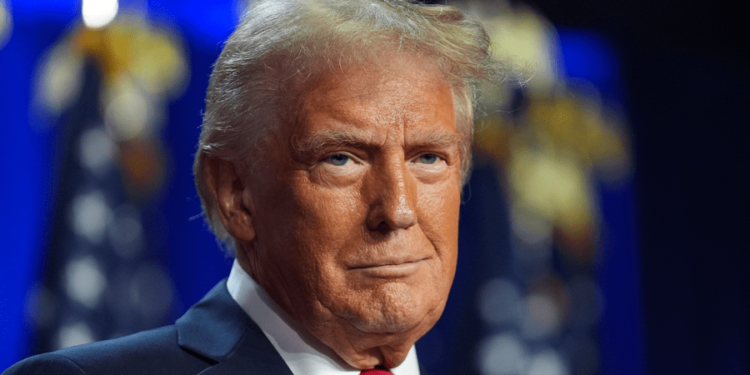
President-elect Trump’s criminal prosecutions are expected to flatline as he returns to the White House, but a murky path forward remains for the sprawling civil lawsuits against him.
Between judgments in the New York attorney general’s civil fraud case and two defamation suits brought by advice columnist E. Jean Carroll, Trump is staring down the barrel of more than a half-billion dollars in penalties.
And the former and soon-to-be president remains tied up in a civil case brought in the wake of the Jan. 6, 2021, Capitol attack, against himself and extremist group leaders.
As opposed to criminal prosecutions against a sitting president, which long-standing Justice Department policy precludes, civil lawsuits against the Oval Office occupant have been permitted to proceed before.
It leaves open the possibility of messy legal battles during Trump’s second term — and a chance his personal coffers could still be drained despite his ascension to the nation’s highest office.
New York Attorney General Letitia James (D) said Wednesday that her office is prepared to take on a second Trump administration.
Though James did not mention it in her speech, her office earlier this year won a $464 million judgment — plus interest that is still accruing — against Trump and his family business after a state judge determined they conspired to alter the former president’s net worth for tax and insurance benefits.
Trump has personally attacked James as “incompetent” and someone who “hates Trump and wants to stop Trump from getting elected.”
“No matter what the next administration throws at us, we’re ready,” James said at a press conference with Gov. Kathy Hochul (D) the day after Election Day. “We’re ready to respond to their attacks.”
“So despite what has happened on the national stage, we will continue to stand tall in the face of injustice, revenge, retribution,” she added.
But the eye-popping judgment against Trump, his company and top executives could already be in peril, election victory aside.
During arguments in September, a New York appeals panel seemed wary of the state’s case. The judges questioned whether any constraints apply to the law James’s office used against Trump, which gives the state sweeping power to bring claims against businesses that engage in “repeated fraudulent or illegal acts or otherwise demonstrate persistent fraud or illegality.”
Trump is also actively appealing two jury verdicts ordering him to pay a combined nearly $90 million to Carroll, the advice columnist.
“Mr. Trump’s election to the presidency does nothing to change either the fact, as determined by two separate juries, that he sexually assaulted and defamed Ms. Carroll, or the applicable legal principles under which he was held liable for that conduct,” Robbie Kaplan, Carroll’s attorney, said in a statement.
Oral arguments in Trump’s appeal of the first verdict were held before the 2nd U.S. Circuit Court of Appeals in early September. The appeal of the second verdict is in an earlier stage and has not yet been argued.
Trump’s Jan. 6 civil case — in which he’s sued alongside members of the extremist Oath Keepers and Proud Boys — is in an earlier phase.
Democratic lawmakers and police officers who defended the Capitol that day brought the lawsuit in 2021, but discovery is not expected to be completed until April, after several delays. A trial date has not been set, and it’s unclear how the case will be affected by Trump’s win.
However, a federal judge previously declined to put the case on hold while Trump’s federal election subversion case played out, which could indicate it will move forward in some capacity even if the criminal case falls flat.
Though Trump’s web of legal battles is in many ways uncharted territory, it won’t be the first time the question is raised of whether civil lawsuits can proceed against a sitting president.
In 1997, the Supreme Court ruled Arkansas government employee Paula Jones’s trial against then-President Clinton claiming he sexually harassed her while governor could proceed. The court asserted there was no “serious” risk its decision would lead to a large volume of politically motivated litigation against a sitting president.
“If and when that should occur, the court’s discretion would permit it to manage those actions in such fashion (including deferral of trial) that interference with the President’s duties would not occur. But no such impingement upon the President’s conduct of his office was shown here,” the high court ruled.
Trump could try to argue that owing hundreds of millions of dollars would interfere with his duties, since he is financially beholden to New York state and Carroll, a private citizen.
But it seems he would rather not pay at all. His campaign spokesperson, Steven Cheung, said Trump’s reelection should spur his legal opponents to stand down.
“It is now abundantly clear that Americans want an immediate end to the weaponization of our justice system, so we can, as President Trump said in his historic speech last night, unify our country and work together for the betterment of our nation,” Cheung said.







